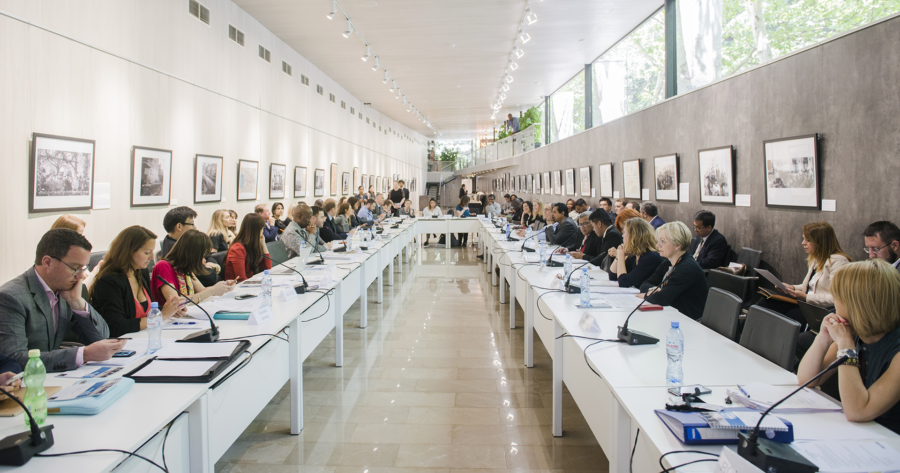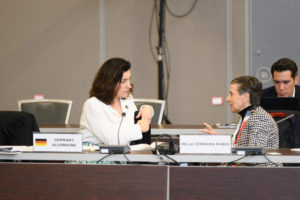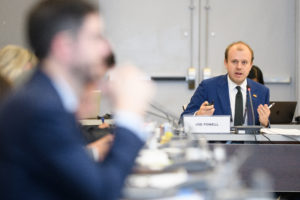11th October 2021
Using the G7 to work alongside civil society to tackle corruption

This year I’ve had the privilege of heading the UK’s G7 anti-corruption efforts, negotiating the commitments which Interior and Security Ministers announced in September. I’ve worked on anti-corruption policy for more than five years and in that time have experienced the buzz of the 2016 London Anti-corruption Summit and the satisfaction of shepherding knotty issues through Whitehall or international negotiations. But for me personally our work in the G7 this year ranks with those highlights – because we’ve agreed the most comprehensive statement on tackling corruption by the G7 since I started working on anti-corruption in 2016.
Throughout the process, I have been determined to bring in perspectives from civil society. I was particularly pleased that for the first time anti-corruption officials from across the G7 met directly with civil society and private sector representatives. And Ministers heard directly what was raised: Delia Ferreira Rubio, the Global Chair of Transparency International, presented the highlights of the G7 discussion to G7 Ministers.

Civil society inputs matter
Tackling corruption needs active engagement from private sector and civil society. But my personal experience is that this is challenging. There is always an element of contestation: discussions can be difficult and tense, with civil servants unable to speak openly, or having to defend positions established by others. But the engagement is critical and I would argue vehemently that for both sides, ‘the game is worth the candle’. At its best, this engagement brings advocacy for change, constructive policy solutions and accountability.
Civil society engagement prompts change
Without active lobbying from civil society, it is uncertain whether we would have the UK Bribery Act – now an accepted part of the UK’s anti-corruption arsenal. This perspective from one of the leading civil society experts, Professor Robert Barrington, gives more on the backstory of the advocacy by civil society that led to it.
The best organisations often come with practical ideas that we can harness. For example, in 2017 the UK introduced unexplained wealth orders, new powers to counter laundering of the proceeds of crime and corruption. This directly built on the proposals made by a Taskforce of experts convened by Transparency International UK.
Informed civil society engagement also brings accountability – helping hold Government’s feet to the fire and encouraging follow up. For example, Transparency International reported regularly on the implementation of commitments from the 2016 London Anti-Corruption Summit and the Royal United Services Institute (RUSI) tracks implementation of commitments in the UK’s Economic Crime Plan.

The changing global context
Demonstrating the value of civil society engagement is only becoming more important given the global trend towards ‘closing civil society space’ – as set out in this 2019 blog on closing civic space. That is why we will take seriously the commitment we made at the G7 to pursue opportunities to engage civil society and the private sector and reflect their views. I am personally committed build on the consultative approach we pioneered this year. And I will include civil society as part of the UK’s delegation to the UN Convention Against Corruption biannual meeting in December.
Our partners in the fight against corruption matter. We have different roles to play but I am in no doubt that the process of exchanging views and wrestling with difficult issues together is vital. If I’m lucky enough to work on anti-corruption for another five years, I hope by then we’ll have built more recognition – at home and abroad – about the importance of these partnerships.
Andrew Preston heads up the Joint Anti-Corruption Unit, a cross-government unit based in the Home Office which leads on implementing the UK’s Anti-Corruption Strategy. The Unit represents the UK at international fora, supports the Prime Minister’s Anti-Corruption Champion John Penrose MP, and works with partners across government to reduce the threat of international illicit finance. Find out more about anti-corruption.
